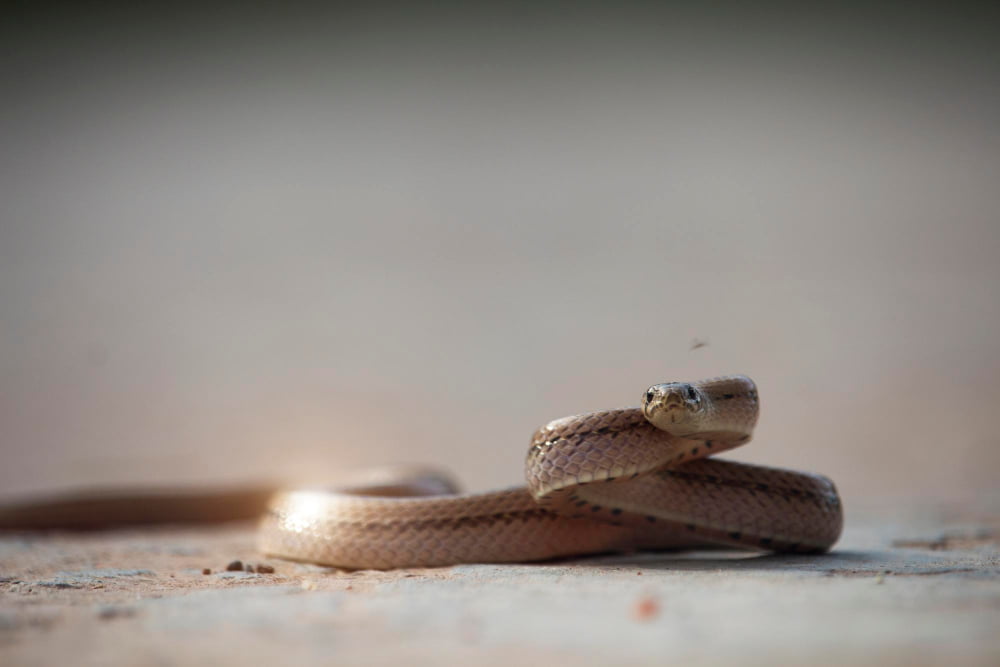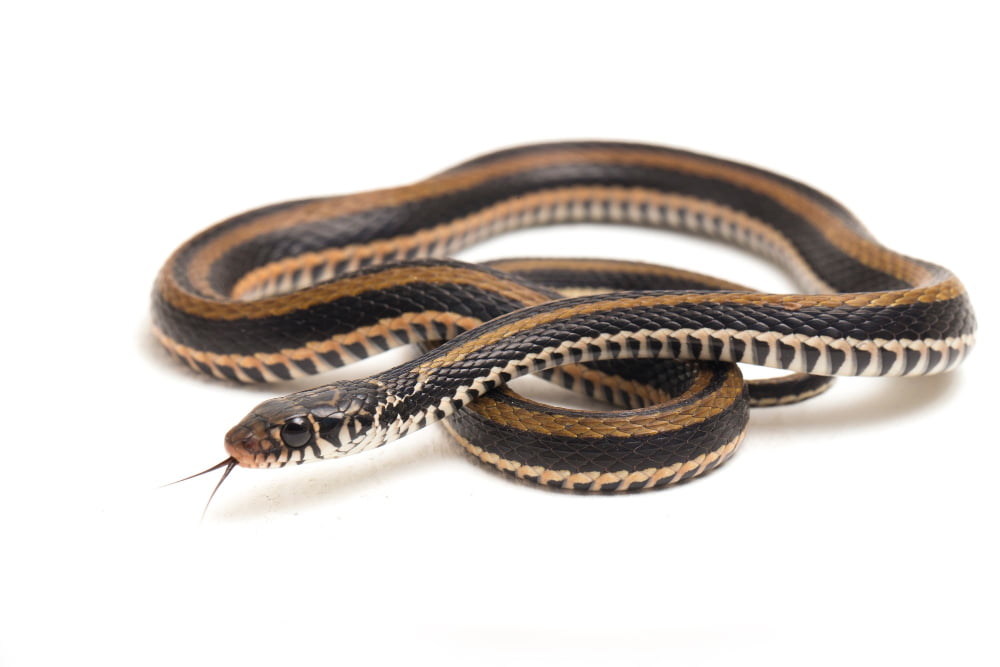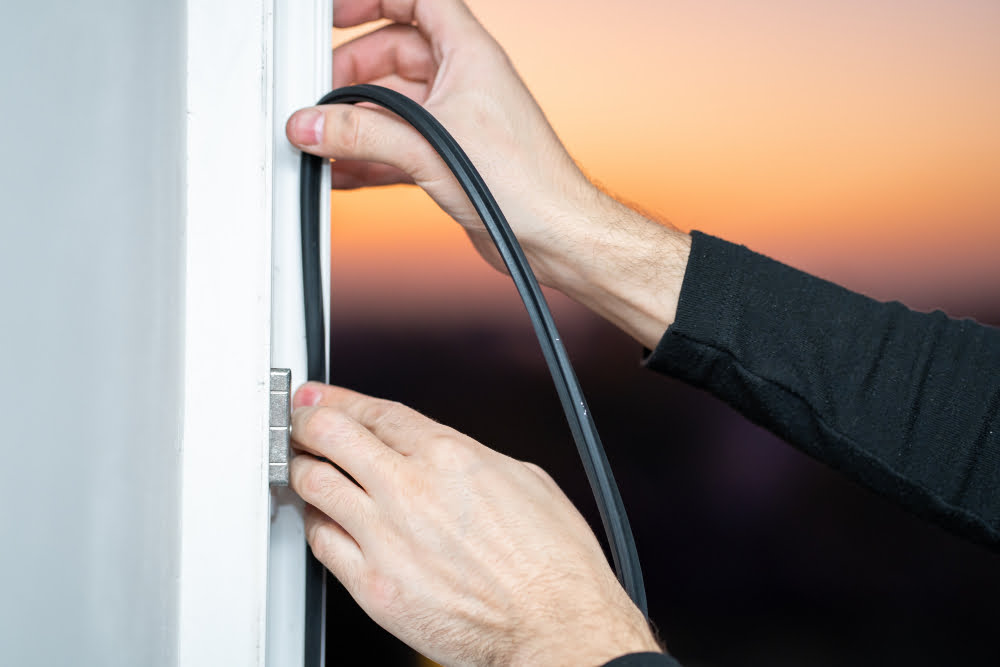Discover effective methods to eliminate snakes from your garage and ensure a safe and snake-free environment.
If you’re dealing with unwelcome slithering visitors in your garage, you’ve come to the right place. This article will guide you through a step-by-step process to not only rid your garage of snakes but also prevent future invasions.
From identifying common entry points to exploring snake deterrents and safe removal methods, we’ve got you covered. Stick around to learn about the best practices and effective strategies to make your garage a snake-free zone.
Key takeaways:
- Garages attract snakes due to shelter, food supply, breeding grounds, and climate.
- Non-venomous snakes include Garter snakes, Rat snakes, and Corn snakes.
- Identify venomous snakes by head shape, eye shape, body shape, coloration, and behavior.
- Safely remove a snake by creating an escape route or calling professionals.
- Prevent snakes in your garage through sealing cracks, reducing food sources, and landscaping changes.
Why Do I Have Snakes in My Garage?

Garages often provide the perfect habitat for snakes. They offer cool, dark, and quiet spaces, making them ideal for these creatures. Various factors attract snakes to garages, some of them being:
- Shelter: Garages provide a safe, secluded spot away from predators such as birds and larger mammals.
- Food Supply: Snakes are attracted to garages if they scent rodents or insects, which constitute their primary diet.
- Breeding Grounds: In some cases, these reptiles find garages favorable for laying eggs due to the controlled conditions within the space.
- Climate: Depending on the season, snakes may seek shelter in garages for warmth during winter or coolness during summer.
By understanding these attractants, it is possible to implement targeted strategies to keep these reptiles at bay and secure your garage.
Identification of Common Snake Types in Garages

Familiarizing oneself with the different species of snakes that are commonly found in garages is a crucial first step. Typically, non-venomous snakes such as Garter snakes, Rat snakes, and Corn snakes are prevalent inhabitants. Garter snakes, the most widespread reptiles in North America, are harmless and beneficial for controlling pests. Rat snakes, known for their rat hunting skills, have a docile behavior and pose little threat. Corn snakes, colorful and generally non-aggressive, are also known to reside in garages.
On the other hand, your garage can also be a home to venomous snakes such as Copperheads, Cottonmouths, or Rattlesnakes depending on your geographical location. Copperheads are known for their unique copper-colored heads, Cottonmouths for their defensive mechanism of displaying a white, cotton-like mouth, while Rattlesnakes are identifiable by their iconic rattling sound.
Learning to recognize these common snakes will help you respond correctly in case you come across one in your garage. Remember, however, that this knowledge is for identification purposes and should not encourage attempts to handle these creatures, especially the venomous ones, without professional help.
How to Distinguish Between Venomous and Non-Venomous Snakes

In identifying whether a snake is venomous or not, first, consider the shape of the head. Non-venomous snakes usually have a round head, while venomous ones often have a triangular shaped head.
Eye shape can also be indicative. Venomous species often have vertical, cat-like pupils, whereas non-venomous ones generally have round pupils.
Examine the snake’s body. Venomous snakes tend to have a heavy, thick body, while their non-venomous counterparts possess a slender form.
Coloration is another hint, although not always accurate, as both venomous and non-venomous snakes can have vibrant or muted colors.
Observe behavior. Rattlesnakes, a common venomous type, are known for their rattling tail when threatened.
Note that these are general guidelines, as there are exceptions in every category. If you are unsure, it is best to maintain a safe distance and call a professional for identification and removal.
What to Do If You Find a Snake in Your Garage

Upon discovering a reptilian visitor, resist the urge to panic or harm it. Keep children and pets away from the area to ensure their safety, along with the snake’s. Determine its exact location but do not attempt to corner it; this could provoke unnecessary aggression.
First, create an escape route. Open your garage door or any other exit points. If the snake doesn’t leave on its own, sweeping it gently with a long broom towards the exit can encourage its departure.
Consider creating a barrier using a tall trash can turned sideways, guiding the snake in gently from behind. Once the snake is inside the can, quickly upright it, trapping the snake.
Remember, if the snake is venomous or you are unsure of its species, do not attempt to handle it yourself. Instead, contact local animal control or a professional wildlife removal service immediately to ensure a safe removal.
Utilizing Snake Repellents for Garage Snake Issues

There are various snake repellents available in the market which can effectively deter snakes from your garage. These are generally available in granular or liquid forms. Some use synthetic ingredients, while others are made from natural materials like essential oils.
For instance, mothballs can make your garage less attractive to snakes. Not only do they dislike the smell, but they’re also harmful if ingested. However, ensure they’re kept out of the reach of children and pets.
Next up are ultrasonic repellents. These devices emit high-frequency sounds, presumed to be uncomfortable for these slithering trespassers. While not harmful, it might push them to look for quieter spaces.
Another organic option is clove and cinnamon oil. Simply mix these oils with water and spray around your garage, focusing on areas where snakes might enter. Snakes detest strong smells, and this can discourage their presence.
Alternatively, sulfur-based snake repellents are quite popular. When sprayed liberally, they camouflage the pheromones left by snakes, which can help in deterring future snake visits.
It is essential, though, to remember that these are preventive measures and may not entirely prevent snakes if other attractions or entry points exist. Additionally, the efficacy of some of these repellents varies, with mixed results reported in different scenarios.
Long-term Snake Prevention Measures for Your Garage

Regular checks and maintenance are key aspects of a snake-free garage. First, consider sealing gaps and cracks where a snake could possibly enter. This includes utility and plumbing lines, doorways, and windows. Weather stripping can be used for doors and window frame gaps, while caulk is effective for cracks and crevices.
Remember, snakes can slip through small openings, so comprehensive sealing is imperative.
Next, reduce any possible snake food sources or hiding places around your garage. Regularly clean your garage, make it a point to remove excess clutter, you might unknowingly be creating a warm nest for these reptiles. Pet food left unattended also attracts rodents, which in turn, lure snakes. Keep your garage rodent-free to deter snakes.
Lastly, consider landscaping changes. Most snakes prefer a cool, damp environment. Keep your garage surroundings clear of tall grasses, piles of wood, or leaves. Having a well-maintained and tidy lawn contributes significantly to keeping snakes at bay.
Implementing these three long-term strategies diligently will limit snake attractions, contributing towards a safer, snake-free garage.
How to Keep Snakes Out of Your Garage in the First Place

Implementing a few proactive measures can deter these unwanted visitors.
1. Clearing Clutter: Snakes love hiding places. Unnecessary clutter in your garage serves as the perfect habitat. Regular cleanup keeps these spaces uninhabitable for them.
2. Sealing Cracks: Snakes can slip through surprisingly small openings. Regularly inspect for and seal any cracks or crevices in the garage walls, doors, and windows.
3. Managing Outdoor Landscaping: Overgrown grass, woodpiles, or debris piles near the garage provide suitable habitat for snakes, which could easily lead them into the garage. Regularly clean and maintain outdoor areas.
4. Using Snake Fencing: Install snake-proof fencing around the garage. Be sure it is buried a couple of inches into the ground to prevent snakes from crawling underneath.
5. Pest Control: Snakes often enter garages in search of food. By keeping rodent and insect populations in check, you can remove their food source, making your garage less appealing.
6. Using Natural Snake Deterrents: Certain plants like marigolds, lemongrass, and Mother-in-Law’s Tongue are known widely as natural snake deterrents. Planting these around your garage can help keep snakes at bay.
Remember, preventative measures are always the first line of defense against snakes in your garage.
Calling Professional Help to Safely Remove a Snake From Your Garage

Enlisting professional assistance can be invaluable for safe snake removal. Experts have specialized equipment and the necessary knowledge to handle these animals properly. They may use tools like snake tongs or tubes to safely capture and transport the snake without causing it harm or putting themselves in danger.
Additionally, they’re trained to identify various species so they can apply the most appropriate relocation or removal strategies. Some species are protected by laws and must be relocated, not killed.
Remember to provide the professional with as much detail about the snake as possible – size, color, and behavior can all be useful for identification. Also, indicate its last known location, making it faster to locate and securely remove the animal from your garage.
Lastly, these experts can also provide valuable advice on how to prevent future snake invasions, including guidance on potential garage modifications or behavior changes that can make the area less attractive to snakes.
Remember, handling snakes can be dangerous, especially for venomous ones. Always prioritize safety and consider hiring a professional if a snake finds its way into your garage.
FAQ
What smells will keep snakes away?
Plants like wormwood, lemongrass, marigold, snake plant, and substances such as white vinegar, ammonia, and fox urine are effective in repelling snakes.
Why do snakes keep coming in my garage?
Snakes often find refuge in garages due to their cool, moist climates, which help them regulate their temperature, especially during dry summer months.
What is the best snake repellent for inside a garage?
The most effective snake repellents for use inside a garage are mothballs and sulfur, as they agitate a snake’s sense of smell and deter them from the area.
Will mothballs keep snakes out of my garage?
No, mothballs are not effective at keeping snakes out of your garage.
What types of home remedies can I use to deter snakes from my garage?
Home remedies to deter snakes from your garage include scattering mothballs, utilizing snake repellents, maintaining a tidy garage, filling in gaps and cracks in your garage walls, and installing mesh screening over vents.
How can the layout or design of my garage prevent snakes from entering?
Ensure your garage design includes tight-sealing doors and windows, well-sealed cracks and gaps in the walls and floor, and clutter-free spaces, as these strategies are effective for preventing snakes from entering garages.
Can ultrasonic snake repellents be effective in a garage setting?
Yes, ultrasonic snake repellents can be effective in a garage setting because they generate a sound wave that snakes perceive as a threat, causing them to avoid the area.